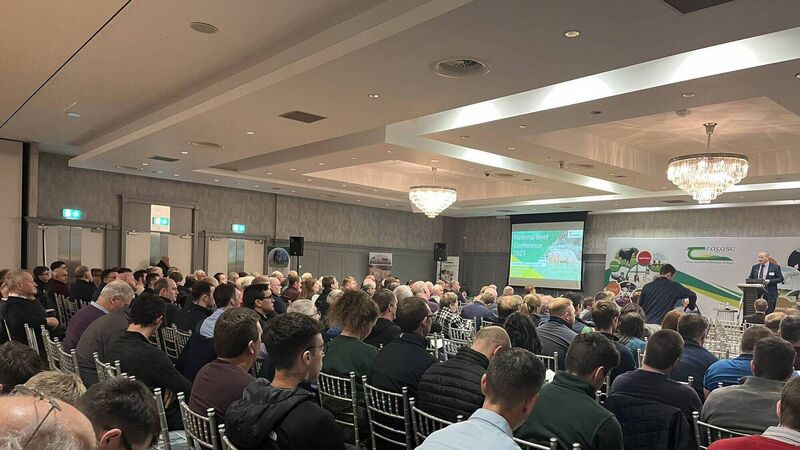French livestock farmers paid to remove carbon

The Teagasc National Beef Conference took place in Ballinasloe, Co Galway. Picture: Teagasc
Attendees at the National Beef Conference learned how 1,250 French farmers are paid for their verified emission reductions and carbon removals.
About 2,500 low-carbon projects on these farms are certified by the French government, with an average of 550 tonnes of carbon dioxide equivalent (CO2-eq) avoided per farm.










